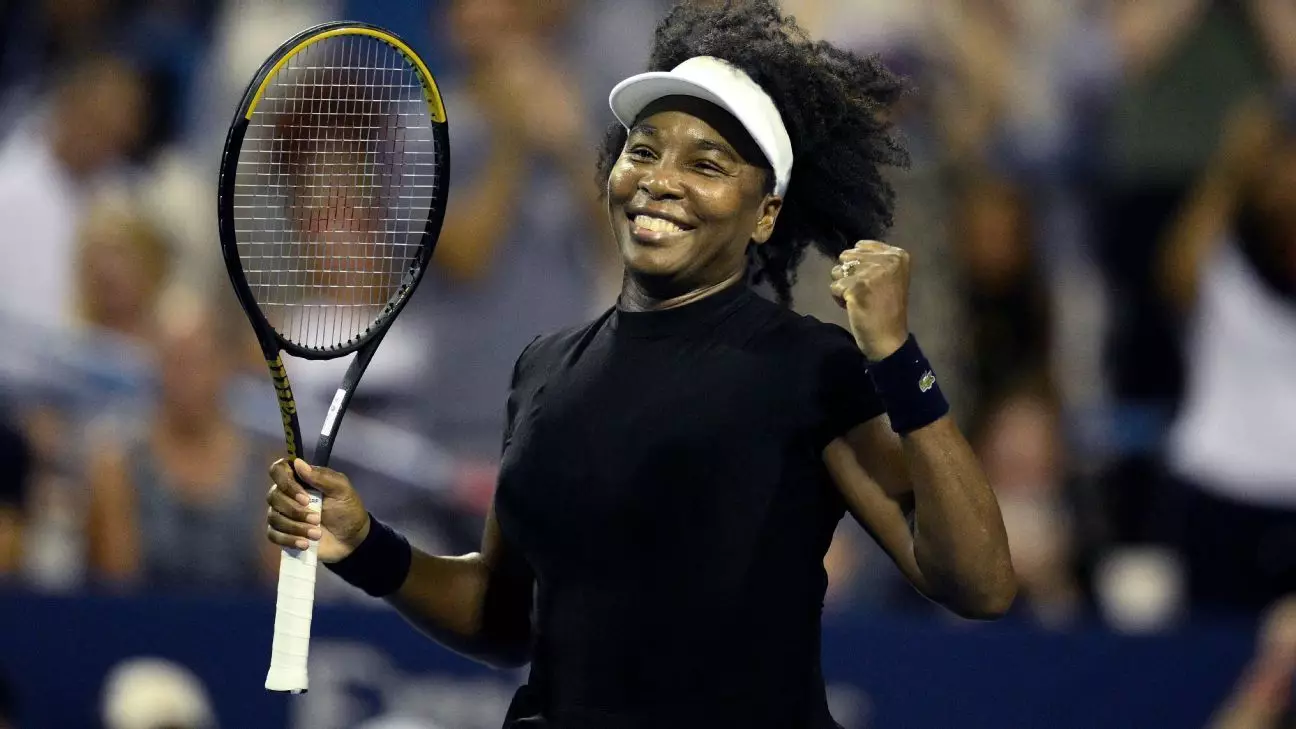Venus Williams’ recent victory at the DC Open defies everything the cynical narrative of sports often suggest about aging and relevance. At 45 years old, most professional athletes would have long since stepped aside or faded into obscurity. Yet, Williams not only stepped onto the court but managed to secure a win, reminding us that resilience and determination can challenge our perceived limitations. Her triumph isn’t just a personal milestone; it is a provocative rebuttal to the ageist stereotypes that diminish the value of experience and longevity in competitive sports. This event underscores an urgent need to reevaluate how society perceives aging—no longer should it be synonymous with decline or irrelevance.
The Power of Experience and the Spoils of Relentless Dedication
Williams’ comeback, after nearly two years away from singles competition due to health challenges and surgery, reveals the profound importance of perseverance. Her gritty performance underscores that mastery and skill, cultivated over decades, cannot be washed away by time or setbacks. Though her physicality might have waned compared to her prime, her strategic mind, shot selection, and shot power still commanded respect. It’s a vivid illustration of how wisdom and seasoned judgment built through years of dedication remain powerful tools in overcoming new challenges. Her ability to summon her signature big serves and groundstrokes proves that experience, rather than just youthful vigor, can still carve out moments of greatness in a sport that often idolizes speed and agility.
Challenging Societal Norms and Ageist Attitudes
The victory sparks a broader conversation about societal expectations surrounding aging, particularly in competitive fields where youth is often idolized. In many ways, Williams’ performance exposes a double standard—what society deems possible or impossible for older athletes often undervalues the human capacity for growth and constant adaptation. Her accomplishment forces fans and critics alike to confront their biases. It questions whether athletes of advanced age should be deemed irrelevant or inspirational. More importantly, it pushes us to consider the value of persistence and the idea that capability does not necessarily diminish with age, but can instead deepen through resilience.
A Reflection on the Power of Community and Support
Williams’ win was not achieved in isolation; it was a collective effort, buoyed by the cheers and encouragement of a supportive crowd in Washington. The reception she received exemplifies how community backing amplifies individual resolve. It highlights a core truth: resilience is often sustained by collective belief and recognition. She was cheered not only for her skill but for her indomitable spirit—a spirit that invites admiration and inspires broader societal appreciation for perseverance regardless of age. Her moment in the spotlight is a testament to how social acknowledgment can elevate individual achievement into a symbol of possibility for many others, especially those facing their own battles with limitations or doubts.
A Provocative Reminder of the Human Potential
Venus Williams’ unexpected victory serves as a stark reminder that human potential is not finitely capped by age, physical decline, or societal expectations. Instead, it is an ongoing journey—a process of relentless pursuit. Her unwavering dedication to tennis, despite setbacks, showcases that life’s later stages can still contain moments of triumph if we refuse to accept the narrative of decline. This event is a provocative challenge to the prevailing narratives that often dismiss aging as a period of inevitable deterioration, suggesting instead that resilience, perseverance, and genuine passion can redefine what is possible at any stage of life.
Williams’ comeback is a compelling testament to the idea that strength and excellence are qualities that can be cultivated beyond the stereotypical prime years. It is a call to reject the limiting labels and to embrace the enduring human spirit that refuses to be extinguished by time. Her story inspires a shift from viewing aging as decline to recognizing it as a badge of resilience—an invaluable attribute that enhances, rather than diminishes, human capacity.



Leave a Reply